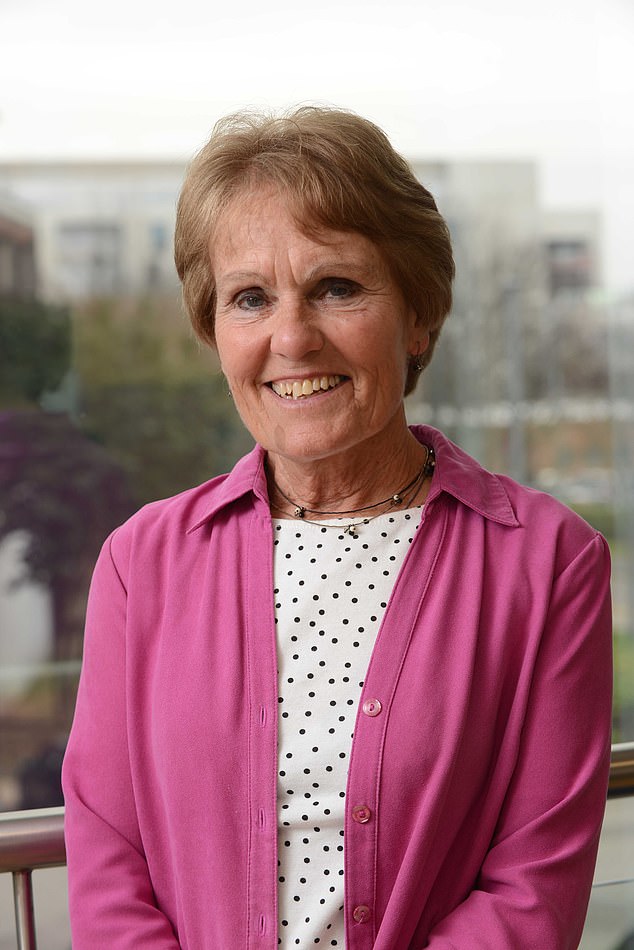As a professor of cognitive neuroimaging, I’ve spent decades using state-of-the-art brain-imaging techniques to investigate the autistic brain.
And the research group I work with has met many hundreds of people with autism and undertaken meticulous explorations of their brains.
The quest, if I was to simplify it to one sentence, is to answer the question I’m perhaps asked most: ‘How do autistic brains get to be autistic?’
It’s no exaggeration to say that it’s like searching through a field of haystacks looking for needles. After all, there are 86billion neurons in the typical human brain; and an estimated 100trillion structural connections between them.
Add to this fact that autism spectrum disorder – a neurodevelopmental condition, which someone has from the moment of conception and not a disease – can lead to an enormously wide array of behavioural symptoms, and you begin to get a sense of the complexity of the work that vast numbers of scientists across the world have been facing while trying to ‘answer’ the autism question.
As the saying goes among those in this field, ‘if you’ve met one person with autism, you’ve met one person with autism’. It is not a single condition – so there cannot be a single cause.
This, though, did not seem to be part of the thesis presented by President Donald Trump yesterday, when he announced the results of a review commissioned by the controversial US Health Secretary Robert F Kennedy Jr, which probed the soaring rates of autism to try to identify its causes.
Problem solved, apparently. We have the answer to autism! The President was last night set to link mothers taking paracetamol when pregnant to the condition.

Gina Rippon is a professor emeritus of cognitive neuroimaging, says it’s risky to say paracetamol causes autism in children

US health secretary Robert F Kennedy Jr has been leading a review into rising autism rates
Paracetamol – often sold as Panadol in the UK and Tylenol in the US – is widely used by expectant mothers to treat pain, headaches and fever.
It’s currently recommended by the NHS as the ‘first choice’ painkiller for pregnant women, but only for short periods and at the lowest effective dose.
Around half of pregnant women in the UK use it, while around 65 per cent of mothers in the US do.
Some studies have already suggested a link between autism and the use of paracetamol. In August, following a review of varied studies of such links, Harvard scientists concluded that there was some evidence of a link – but there were other factors, such as maternal health problems, also associated with autism.
They advised pregnant women to take advice about using paracetamol, but stopped far short of claiming any kind of causal link.
Others, though, have found no association. A 2024 study of 2.4million Swedish children, led by scientists from the eminent Karolinska Institute, found no association between paracetamol use during pregnancy and children’s risk of autism.
It is dangerous and simplistic to draw firm lines between such a complex condition and one cause. Indeed, we have already seen what happens when such a thing occurs with autism.
Who can forget the infamous claims about the links between the MMR vaccine and autism made by Andrew Wakefield in 1998, which have now been thoroughly discounted – but not before doing permanent damage to the uptake of the vital, life-saving MMR vaccine?
Overblowing this association with autism to paracetamol risks doing precisely the same thing – again, with potentially dangerous health consequences.
For not treating a fever or pain while pregnant also poses risks to both mother and baby.
It also places a terrible amount of guilt needlessly onto mothers. Any mother of an autistic child has enough to deal with, without being misguidedly told she ’caused’ her offspring’s condition. I am not asking us to ignore that there is some reliable evidence of possible environmental contributions – as well as paracetamol, there is also advanced parental age, maternal health and exposure to the epilepsy drug sodium valproate.
But it is a risky game to imagine that this can be the whole answer.
Back in April this year, when RFK Jr launched his review, his blinkers already appeared to be on.
‘This is a preventable disease,’ he said. ‘We know it’s an environmental exposure. It has to be.’
And so, with striking simplicity, his prediction prefigured the review’s conclusion.
The striking thing about this latest announcement is it ignores what we do know about autism: that it’s highly heritable.
To date, more than 800 genes have been identified as associated with autism. Experts say autism is one of the most heritable mental health conditions.
Even the earliest clinical case notes from the 1940s examining children who seemingly had autism included detailed reference to the unusual behaviour of parents and close relatives.
For example, when the Austrian-born psychiatrist Leo Kanner – known as the ‘father of autism’ – asked one parent to tell him a bit more about his child, he received 33 closely typed, single-spaced pages, which he noted was ‘obsessive’.
This sort of connection simply cannot be explained away by taking a few paracetamol while pregnant.
What then, is prompting the seeming boom in rates of autism?
When initially identified early last century, autism was a rare condition, with reports of about 0.5 per 1,000 (0.05 per cent of children).
In the 1980s, the diagnostic criteria were widened, and the prevalence rose to about one per 1,000.
But with increased awareness, detection and acceptance, numbers reported have increased dramatically, with a reported rise of 787 per cent between 1998 and 2018.
In the US, one in 36 children have been diagnosed with autism; in the UK it’s one in 57.
This kind of increase has generated much scaremongering rhetoric, with terms such as an ‘autism epidemic’.
I’ve seen many things bandied around in the hunt for a solution. Unspecified ‘environmental toxins’ is a favourite, as is mercury – in vaccines or teeth fillings. All have been thoroughly investigated and rejected.
Low levels of maternal folate – one of the B-group vitamins – during early pregnancy have been linked in several studies to an increased risk of autism, though findings are not entirely consistent.
Large studies in Norway, the US and Israel found the children of mothers who took folic acid supplements (the synthetic form of folate) around conception had a 30-70 per cent lower likelihood of autism compared to those who did not, suggesting folate may have a protective effect on brain development.
However, other large studies, such as the Danish National Birth Cohort, did not observe a significant association.
I find it disturbing that, apparently, the Trump administration also plans to claim a medication called leucovorin is a possible treatment for autism. Used in chemotherapy, leucovorin is derived from folic acid – but some snake-oil salesmen on social media seem to be claiming that dosing your child with it will suddenly unleash their language. All of a sudden, autism is caused by a pill – and now cured by a pill too!
The reality is that what has helped our understanding of autism is not only the persistence and dedication of autism researchers over many years, but the stunning advances in genetics research techniques – not to mention exponential leaps in computing power, the sequencing of the human genome (our genetic blueprint) and the emergence of large-scale research by groups of scientists dedicated to unpicking the autism puzzle.
Autism is so much more than paracetamol, whatever President Trump and RFK Jr may claim.
Gina Rippon is a professor emeritus of cognitive neuroimaging at the Aston Brain Centre, Aston University and author of The Lost Girls of Autism (Macmillan)
